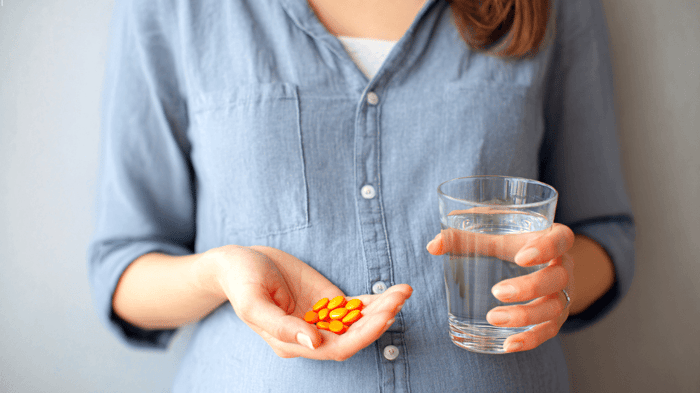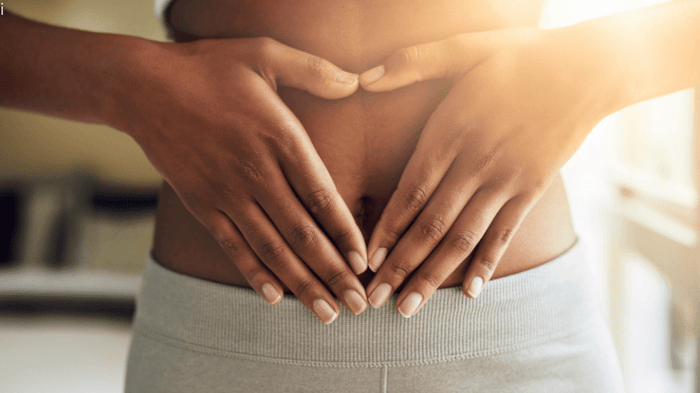Table of Contents
- The Hormonal Puzzle: Why Breastfeeding Triggers Dryness
- How Vaginal Dryness Feels After Birth
- Why No One Warns You About It
- The Intimacy Challenge: When Motherhood Meets Partnership
- Lactation, Libido, and the Emotional Spiral
- Beyond Hormones: The Psychological Dimension
- Restoring Comfort: What Actually Helps
- Why Supplements Matter in This Season
- Breaking the Silence: Creating a Culture of Openness
- Looking Ahead: Beyond Breastfeeding
- From Silence to Strength
- FAQs
The birth of a baby is often described as magical—tiny fingers wrapping around yours, that first sleepy smile, the warmth of skin-to-skin contact. But what rarely makes it into the baby books or parenting blogs is the quieter reality many new mothers face: discomfort in their own bodies while breasfeeding.
One of the most common, yet least discussed, postpartum symptoms is vaginal dryness during breastfeeding. Women whisper about it to their closest friends, sometimes mention it nervously at a doctor’s appointment, but rarely is it talked about openly. And yet, it can affect intimacy, confidence, and overall well-being at a time when mothers already feel physically and emotionally stretched.
This blog is here to break the silence. Let’s explore the hormonal link between breastfeeding and vaginal dryness, why it happens, how it feels, and—most importantly—what can be done to bring comfort back without shame.
The Hormonal Puzzle: Why Breastfeeding Triggers Dryness
Breastfeeding is a hormonal symphony. While prolactin drives milk production and oxytocin fuels bonding, estrogen quietly takes a backseat. And this drop in estrogen is what links breastfeeding with vaginal dryness.
Estrogen plays a crucial role in maintaining the vaginal mucosa. It keeps tissues elastic, plump, and naturally lubricated. Without it, the vaginal walls can thin, moisture levels decline, and sensitivity increases. This isn’t pathology—it’s biology. The body prioritizes milk for the baby, temporarily shifting resources away from reproductive readiness.
For many mothers, the result is a paradox: while the breasts overflow with nourishment, the vaginal tissues feel parched. It’s a hormonal trade-off designed by nature, but one that can be deeply uncomfortable.
How Vaginal Dryness Feels After Birth
The experience of vaginal dryness during breastfeeding is more than just “feeling dry.” Women describe it as:
A burning or stinging sensation during intimacy.
General discomfort, even when simply walking or sitting.
A sense of tightness, almost like the tissues have shrunk.
Microtears or irritation after intercourse make recovery even slower.
The emotional layer compounds the physical one. New mothers often report guilt or shame, worrying that their lack of comfort signals disinterest in their partners. But the reality is that the body is undergoing a normal, temporary adjustment—one that deserves compassion, not judgment.
Why No One Warns You About It
Why do so many mothers enter postpartum life blindsided by this symptom?
First, there’s the cultural hush around vaginal health. Discussions about stitches, lochia, or C-sections are tolerated, but bringing up vaginal dryness often feels like crossing a line. Second, the medical focus after birth tends to be on the baby’s health, leaving the mother’s sexual well-being under-addressed. Finally, many women assume they’re alone in this experience, so they don’t speak up—reinforcing the silence for others.
By acknowledging the hormonal link openly, we chip away at the taboo and create space for honest conversations that empower mothers instead of isolating them.
The Intimacy Challenge: When Motherhood Meets Partnership
For couples, vaginal dryness during breastfeeding can feel like an unspoken intruder in the relationship. Physical discomfort may lead to avoiding intimacy, which partners can misinterpret as rejection.
The reality is layered. Sleep deprivation, body image changes, and hormonal shifts already reshape postpartum intimacy. Add dryness into the mix, and what was once effortless can become awkward or painful. The result is often tension—when in truth, what’s needed is understanding.
When couples recognize dryness as a temporary, hormonally driven reality, they can reframe intimacy. Instead of pressure to “go back to normal,” they can explore other ways of connecting—kissing, touch, shared laughter—that honor the bond while giving the body time to heal.
Lactation, Libido, and the Emotional Spiral
The hormonal link doesn’t stop at dryness. The same drop in estrogen that reduces lubrication also lowers libido for many women. Combine that with fatigue, hormonal mood shifts, and the mental load of newborn care, and desire may feel like a distant memory.
This can create a painful cycle: dryness leads to discomfort, discomfort dampens desire, and low desire deepens emotional distance in a partnership. Left unspoken, partners may wonder if intimacy is gone forever.
But understanding the biology behind it changes the story. This isn’t permanent. It isn’t a lack of love or attraction. It’s the body prioritizing one season of life—nourishing a baby—while temporarily pausing another.
Beyond Hormones: The Psychological Dimension
While estrogen levels explain the biology, the emotional terrain deserves equal attention. Vaginal dryness can trigger feelings of:
Loss of identity: A body once associated with sexuality now feels clinical, dedicated only to caregiving.
Fear of rejection: Worry that a partner will grow frustrated or distant.
Shame: Believing the symptom is abnormal or a personal failing.
These feelings can weigh heavily during an already vulnerable postpartum stage. That’s why solutions should address not only the physical aspect of dryness but also the psychological one—reassuring women that their experiences are valid and temporary.
Restoring Comfort: What Actually Helps
Here’s where the conversation shifts from explanation to empowerment. Vaginal dryness during breastfeeding is common, but it’s not something mothers have to simply endure.
Moisture support: Natural supplements like She Juicy can help restore comfort from the inside out, offering a hormone-free way to support vaginal lubrication.
Lubricants and moisturizers: Using them isn’t a sign of weakness—it’s a practical tool for comfort and pleasure.
Open communication: Telling a partner, “I want to be close, but I need more time or support,” reframes intimacy as teamwork.
Professional guidance: Pelvic floor therapists, gynecologists, or midwives can recommend tailored solutions.
Each mother’s journey is unique. The key is exploring options without shame, reclaiming agency in the process.
Why Supplements Matter in This Season
Breastfeeding mothers often hesitate to add anything new to their regimen, but natural, hormone-free supports can be game changers. She Juicy, for example, uses plant-based ingredients like slippery elm bark to support vaginal mucosa naturally. Because it’s estrogen-free, it provides comfort without interfering with the hormonal balance needed for lactation.
By easing physical discomfort, supplements also reduce emotional stress. A body that feels nourished and comfortable is a body that feels more open to intimacy and self-confidence. In this way, natural support creates a ripple effect that benefits not only the mother but also the relationship.
Breaking the Silence: Creating a Culture of Openness
Imagine a world where conversations about postpartum vaginal health were as common as discussions about diapers or breastfeeding techniques. Women would enter motherhood prepared, knowing dryness is not a failure but a natural hormonal side effect. Partners would feel informed, doctors would proactively ask about it, and mothers wouldn’t have to carry the weight of confusion or shame.
Breaking the silence isn’t just about comfort—it’s about dignity. Every woman deserves to feel seen, heard, and supported in her postpartum body.
Looking Ahead: Beyond Breastfeeding
Vaginal dryness during breastfeeding is temporary. Once estrogen levels stabilize after weaning, many women notice significant improvement. But this stage leaves a lasting lesson: the importance of open conversations about vaginal health at every stage of life.
For some women, the experience even serves as a rehearsal for menopause, another season when hormonal changes impact lubrication. Having already faced the challenge, they may approach midlife transitions with more awareness and confidence.
From Silence to Strength
Breastfeeding is an act of devotion, but it doesn’t have to come at the cost of comfort or intimacy. Vaginal dryness is not a flaw, not a secret to hide, but a natural part of the postpartum hormonal landscape.
By understanding the hormonal link, embracing supportive tools, and speaking openly about the experience, women reclaim power over their bodies. And in that reclamation lies freedom—the freedom to nurture, to connect, and to feel juicy, confident, and whole again.
FAQs
Is vaginal dryness during breastfeeding normal?
Yes—extremely. It’s a common hormonal side effect of low estrogen while prolactin and oxytocin dominate. You’re not broken, and you’re definitely not alone.
How long does the dryness last?
For many women, it eases once breastfeeding decreases or stops. For others, symptoms linger throughout the nursing journey but improve with supportive strategies like natural supplements or moisturizers.
Can I still enjoy intimacy while breastfeeding if I’m experiencing dryness?
bsolutely. It may require adjustments—longer foreplay, lubricants, or creative alternatives—but intimacy doesn’t have to vanish. With communication and support, many couples find their bond grows stronger.
Is it safe to use supplements while breastfeeding?
Always consult your healthcare provider. That said, options like She Juicy are hormone-free and plant-based, making them a gentle choice for many women seeking relief without disrupting lactation.
What should I do if dryness causes pain or bleeding?
Don’t suffer in silence. Persistent discomfort or pain is a signal to see a healthcare professional. There are safe, effective ways to restore comfort—you deserve them.










